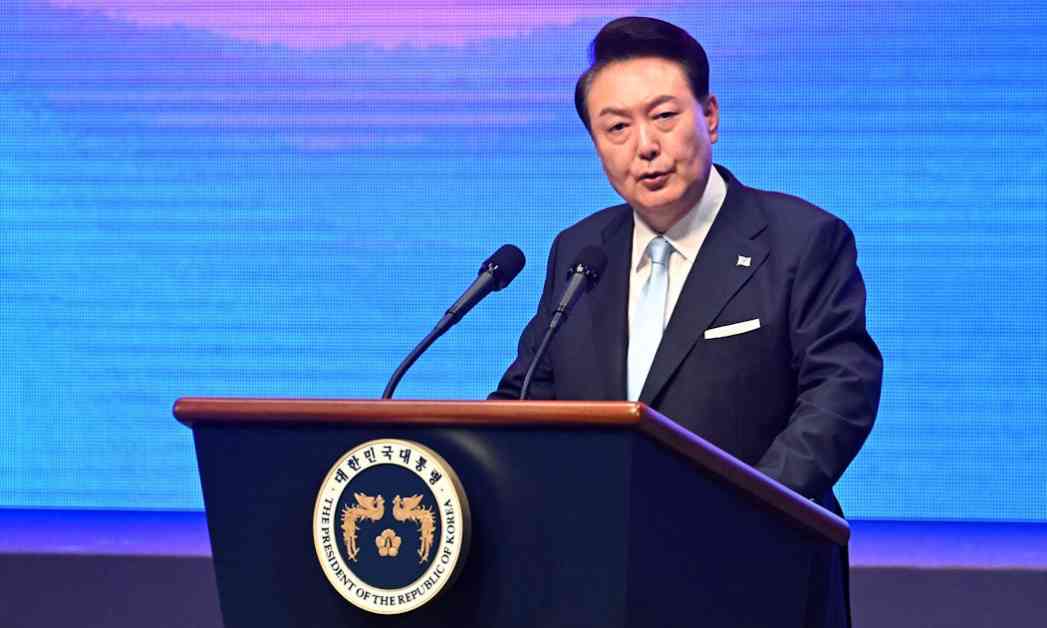Korean Liberation Day Speech by Yoon Suk-yeol Focuses on Inter-Korean Unification Vision, Criticized for Lack of Mention of Japan-Korea Historical Disputes
As we commemorate Korean Liberation Day, it is essential to reflect on the vision for inter-Korean unification outlined in Yoon Suk-yeol’s speech. The focus on bridging the gap between North and South Korea, fostering peace, and reuniting families separated by the Korean War is commendable. However, there has been criticism for the lack of mention of Japan-Korea historical disputes in the speech.
Subheadings:
1. Importance of Inter-Korean Unification Vision
2. Criticism for Omission of Japan-Korea Historical Disputes
3. Moving Towards Comprehensive Resolution of Historical Issues
Importance of Inter-Korean Unification Vision
Yoon Suk-yeol’s emphasis on the vision for inter-Korean unification is crucial for fostering peace and stability on the Korean Peninsula. The commitment to dialogue, cooperation, and reconciliation between North and South Korea is a step in the right direction towards resolving decades of division and conflict. The promotion of cultural exchanges, economic cooperation, and humanitarian efforts are essential pillars in building trust and understanding between the two Koreas.
Furthermore, the focus on reuniting families separated by the Korean War highlights the human cost of division and the need for compassion and empathy in the reunification process. By addressing the humanitarian aspect of the conflict, Yoon Suk-yeol’s speech resonates with the shared history and aspirations of the Korean people for a peaceful and prosperous future.
Criticism for Omission of Japan-Korea Historical Disputes
While Yoon Suk-yeol’s speech articulates a vision for inter-Korean unification, there has been criticism for the lack of mention of Japan-Korea historical disputes. The unresolved issues stemming from Japan’s colonial rule over Korea continue to impact diplomatic relations and historical memory between the two countries. The comfort women issue, forced labor during World War II, and territorial disputes remain contentious topics that require acknowledgment and reconciliation.
The omission of Japan-Korea historical disputes in Yoon Suk-yeol’s speech raises concerns about the comprehensive approach needed to address the complex historical legacies that continue to affect regional stability and cooperation. Ignoring these issues risks undermining efforts towards genuine reconciliation and lasting peace in Northeast Asia.
Moving Towards Comprehensive Resolution of Historical Issues
In moving towards a comprehensive resolution of historical issues, it is essential for leaders to acknowledge the past injustices, promote dialogue, and seek mutual understanding. By addressing Japan-Korea historical disputes openly and transparently, both countries can pave the way for healing wounds, building trust, and fostering cooperation.
Furthermore, engaging in truth-seeking initiatives, apology, and reparations processes can contribute to reconciliation and the promotion of historical memory. By confronting the difficult chapters of history, Japan and Korea can build a foundation for a more peaceful and prosperous future based on mutual respect and understanding.
In conclusion, while Yoon Suk-yeol’s focus on inter-Korean unification is commendable, addressing Japan-Korea historical disputes is equally essential for promoting reconciliation, stability, and cooperation in Northeast Asia. By acknowledging the past and working towards a comprehensive resolution of historical issues, leaders can pave the way for a more peaceful and prosperous future for all.












